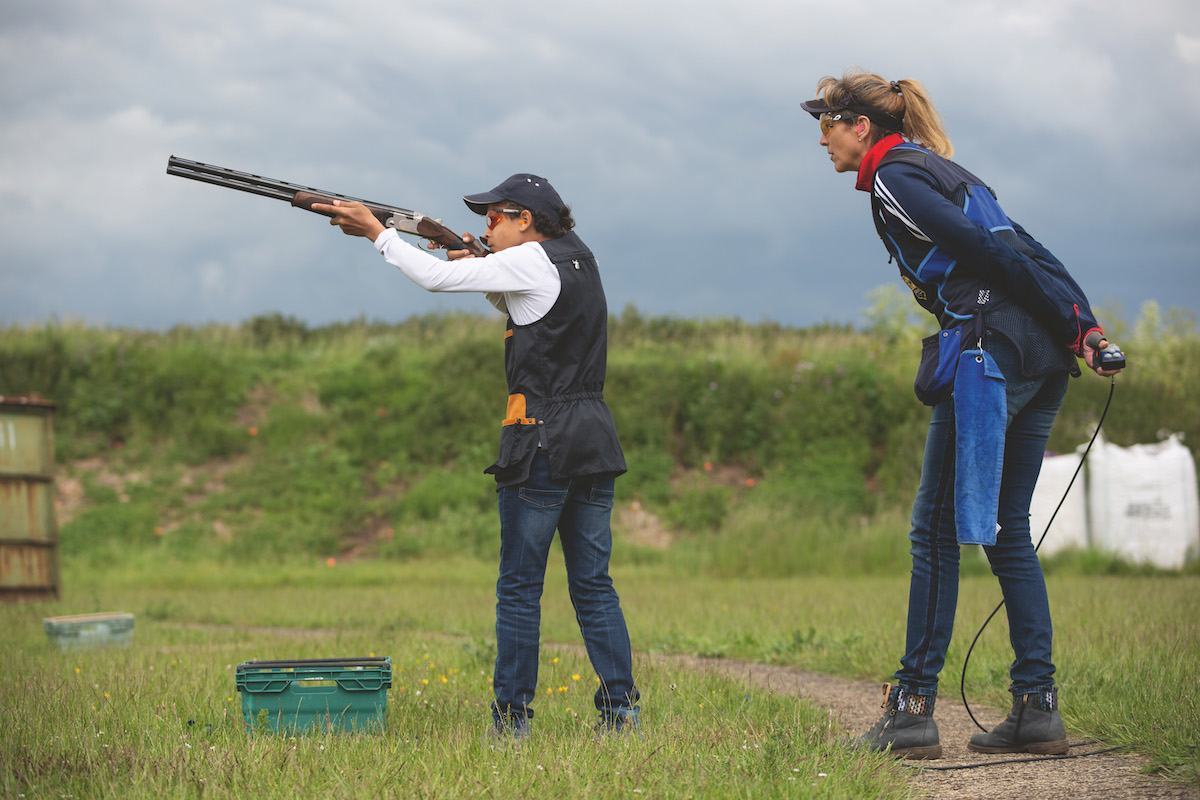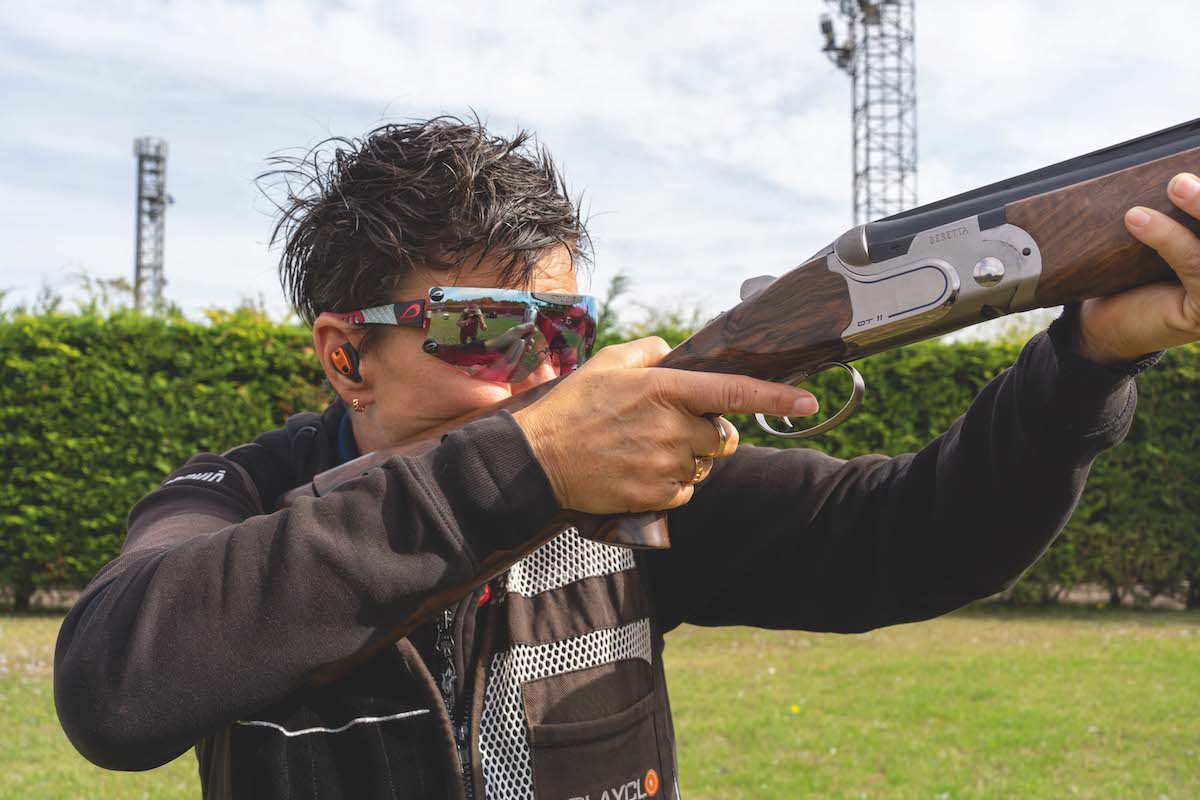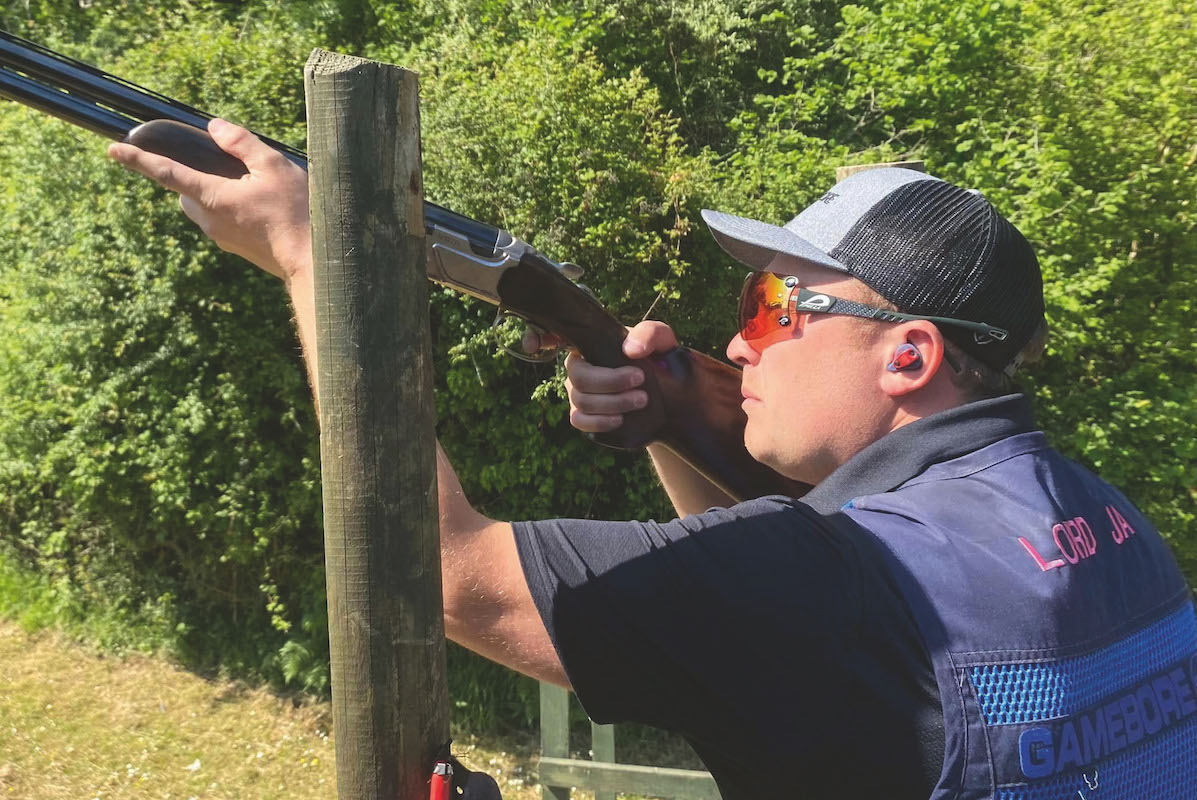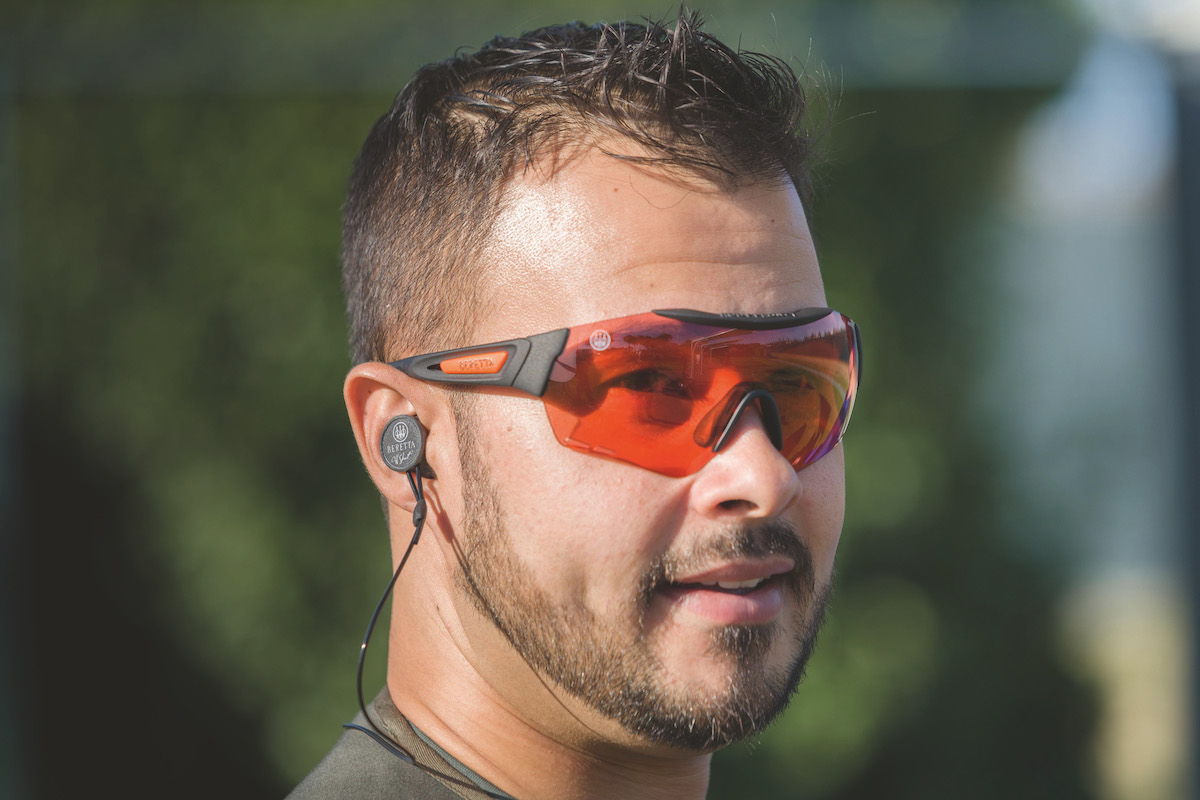Who needs a clay coach?
You do! Georgina Roberts explains how a coach can guide, motivate and support you on your way to success

A coach can help you reach your potential and achieve your goals
A coach is much more than just someone who will tell you “you’re in front of that” or “you missed that one behind”. They will help you develop skills and behaviours often without needing to teach or tell you, but rather by asking stimulating questions that you can answer yourself. Coaches help guide you to reach your potential and achieve your goals. They are there to lead, but also to put you first. A coach will help you navigate your way through reactions to winning, losing, making mistakes, taking risks and facing obstacles that stand in your way.
As an athlete it can be difficult to stay ‘on track’. If you’re entirely focused on one thing, you might lose sight of other equally important factors. For example, if a shooter is working on developing a smooth, controlled movement to the target, it can be easy to get so caught up in doing that one thing right, that you forget about your routine. This might be something you don’t notice, but I can guarantee your coach will.

Thought-provoking questions can help you unlock answers for yourself
Planning and organisation
Breaking down your big goals into small chunks can help them seem more realistic. In order to achieve any of these, you need to have an actionable plan. A coach can help you build this plan, but also help you stick to it if you lose sight of your ‘bigger picture’. Every time you train or practise, there should be a reason for it.
Coaches can help develop you – this can be technically, physically, mentally, tactically and with behaviours.
Having someone in your team who has the experience and the knowledge to incorporate these into a session based specifically around your goals is important for your development. A coach will help you lead your own plan. As a shooter you need to understand what the purpose of the training session is. Why are you there? What do you want to achieve? What does success look like to you for that session specifically? How will you measure that success? These questions can seem daunting, but your coach is there to help you answer these questions and will hold you accountable to them.

You’re never too young to benefit from good coaching
Evaluation and analysis
When you’re asked why you’ve missed a target, it’s easy to answer, “I don’t know.” Coaches are able to ask thought-provoking questions that can help unlock the answer and teach you how to break down your own shooting. This is important as you won’t always have your coach with you, so the ability to fix mistakes by yourself while you’re on the stand is a powerful tool.
We all know that practice makes perfect, so how do we know if we are practising to a high enough standard? With competitive seasons varying throughout the year, coaches can help build training programmes to suit individual schedules, for example quantity vs quality. Sometimes it’s more beneficial to have low-volume, high-intensity training and sometimes it’s necessary to shoot high volumes at low intensity. A coach will be able to help you navigate through this and work with you to find the right time to do both.
Aside from this, coaches will often be able to see behaviours and performances in a different light to that of the shooter, whether it’s a positive action they should pursue or a bad habit creeping into play. It’s almost as though coaches are able to hold up a mirror, so that the shooter can see themselves from a different viewpoint in different settings or scenarios.
When things aren’t going as planned, it’s easy to focus on the negatives, what you did badly and subsequently create doubts in your head that are unsubstantiated. A coach will be able to pick apart the performance or the shot and remind you of the positives and what you did well, which can carry you forward and help rebuild your mental resilience.

A coach can help you solve technical problems
Problem solving
If you have a problem, a coach will try to help you fix it. No coach is perfect and therefore they won’t have every answer, but they will try to find it for you. If there is something wrong with a performance technically, a coach can tailor a session to specifically work on that problem by introducing certain games or drills that will help solve the problem.
Coaches want to take as much strain off the shooter as possible, to ensure that they can compete and perform to the best of their ability. This can even be down to creating a safe and positive environment for a shooter to practise in, so they can feel at their most comfortable when learning and trialling new techniques.

Finding positives helps rebuild mental resilience
Support team
To be the best at what you do, you need to surround yourself with people who want to see you succeed and want to help you and encourage you. A strong support network is vital for achieving goals. A good coach is fundamental to this: someone who motivates you and is there to lead when you need guidance.
So, if you want to succeed, you need a coach, to trust them and to listen to what they say.








